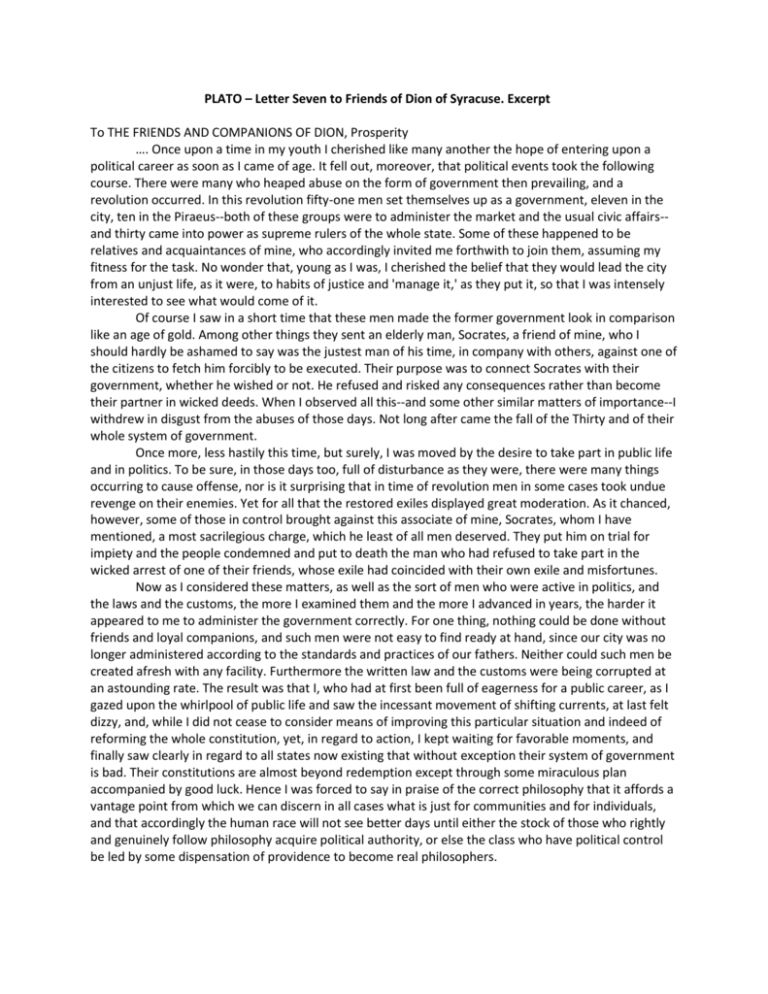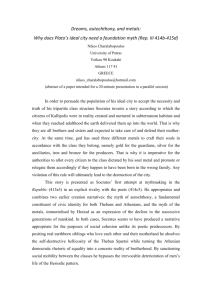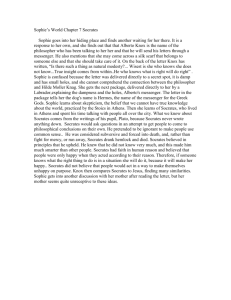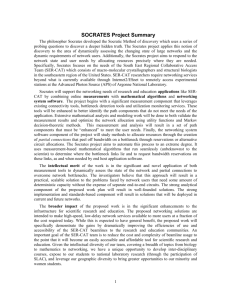PLATO letter 7
advertisement

PLATO – Letter Seven to Friends of Dion of Syracuse. Excerpt To THE FRIENDS AND COMPANIONS OF DION, Prosperity …. Once upon a time in my youth I cherished like many another the hope of entering upon a political career as soon as I came of age. It fell out, moreover, that political events took the following course. There were many who heaped abuse on the form of government then prevailing, and a revolution occurred. In this revolution fifty-one men set themselves up as a government, eleven in the city, ten in the Piraeus--both of these groups were to administer the market and the usual civic affairs-and thirty came into power as supreme rulers of the whole state. Some of these happened to be relatives and acquaintances of mine, who accordingly invited me forthwith to join them, assuming my fitness for the task. No wonder that, young as I was, I cherished the belief that they would lead the city from an unjust life, as it were, to habits of justice and 'manage it,' as they put it, so that I was intensely interested to see what would come of it. Of course I saw in a short time that these men made the former government look in comparison like an age of gold. Among other things they sent an elderly man, Socrates, a friend of mine, who I should hardly be ashamed to say was the justest man of his time, in company with others, against one of the citizens to fetch him forcibly to be executed. Their purpose was to connect Socrates with their government, whether he wished or not. He refused and risked any consequences rather than become their partner in wicked deeds. When I observed all this--and some other similar matters of importance--I withdrew in disgust from the abuses of those days. Not long after came the fall of the Thirty and of their whole system of government. Once more, less hastily this time, but surely, I was moved by the desire to take part in public life and in politics. To be sure, in those days too, full of disturbance as they were, there were many things occurring to cause offense, nor is it surprising that in time of revolution men in some cases took undue revenge on their enemies. Yet for all that the restored exiles displayed great moderation. As it chanced, however, some of those in control brought against this associate of mine, Socrates, whom I have mentioned, a most sacrilegious charge, which he least of all men deserved. They put him on trial for impiety and the people condemned and put to death the man who had refused to take part in the wicked arrest of one of their friends, whose exile had coincided with their own exile and misfortunes. Now as I considered these matters, as well as the sort of men who were active in politics, and the laws and the customs, the more I examined them and the more I advanced in years, the harder it appeared to me to administer the government correctly. For one thing, nothing could be done without friends and loyal companions, and such men were not easy to find ready at hand, since our city was no longer administered according to the standards and practices of our fathers. Neither could such men be created afresh with any facility. Furthermore the written law and the customs were being corrupted at an astounding rate. The result was that I, who had at first been full of eagerness for a public career, as I gazed upon the whirlpool of public life and saw the incessant movement of shifting currents, at last felt dizzy, and, while I did not cease to consider means of improving this particular situation and indeed of reforming the whole constitution, yet, in regard to action, I kept waiting for favorable moments, and finally saw clearly in regard to all states now existing that without exception their system of government is bad. Their constitutions are almost beyond redemption except through some miraculous plan accompanied by good luck. Hence I was forced to say in praise of the correct philosophy that it affords a vantage point from which we can discern in all cases what is just for communities and for individuals, and that accordingly the human race will not see better days until either the stock of those who rightly and genuinely follow philosophy acquire political authority, or else the class who have political control be led by some dispensation of providence to become real philosophers.











